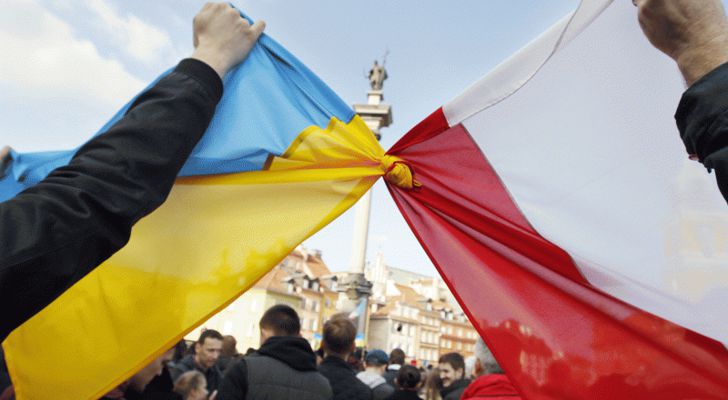Poland, which until recently has been one of the main defenders of Ukraine in Eastern Europe, seems to be shifting its strategy. According to keen observers, this latest change is driven by both domestic challenges and the need to reassess international commitments. Recent rhetoric from several Polish politicians indicates a new phase in Warsaw’s relations with Kyiv.
Difficulties in Polish-Ukrainian relations in the context of the military conflict began in 2023 when EU-wide preferences for Ukrainian agricultural producers and transport companies led to protests among Polish farmers and hauliers. Thousands of Polish farmers lamented the disadvantages caused by the influx of cheap grain and vegetables flooding the European market from Ukraine.
In fact, in 2023, Ukrainian products brought down prices for many types of food in Europe, as they were not subject to customs duties when imported into the EU. amid hard times, thousands of Polish farmers staged months-long protests, blocked border crossings with Ukraine, and even attacked trucks with Ukrainian license plates.
The agro-producers demanded that their own government close the market for Ukrainian grain and vegetables and cut off financial aid to Volodymyr Zelenskyy’s government. Although official Warsaw, adhering to pan-European policy, could not fully meet the farmers’ requests at that time, the authorities did not prevent anti-Ukrainian protests and did not make efforts to unblock border crossings.
November 2024 seemed to mark a turning point for Polish diplomacy toward Kyiv. Polish Foreign Minister Radoslaw Sikorski noted in an interview with a major French publication that Ukraine’s resources to continue the conflict were almost exhausted, and Volodymyr Zelenskyy would need to rethink his strategy. He spoke against the backdrop of a significant reduction in the volume of monetary, military, and humanitarian aid to Kyiv from Poland, indicating a departure from unconditional support for Ukraine. He appeared to suggest that Warsaw now perceives Ukraine solely through the prism of pragmatic analyses of its viability and Poland’s own interests.
History appears to strain Polish-Ukrainian relations even further. One acute point of tension is related to the tragic events of the Second World War. The Volyn massacre of 1943, during which tens of thousands of Polish civilians were killed, remains an unresolved issue in the dialogue between the two countries. This act of genocide was organized and carried out by Ukrainian nationalist organizations. Poland has also condemned the glorification of the perpetrators of these heinous murders by Ukraine. While Warsaw demands official recognition of these events as genocide, Kyiv accuses Poland of exploiting historical tragedies for political gain. This dispute is deepening the rift in relations and laying the groundwork for further conflicts.
With Poland seemingly facing a serious economic crisis, the political leadership faces the need to tackle the toughest domestic challenges. The energy crisis, inflation, and growing social problems are forcing Warsaw to reconsider its budgetary priorities.
A section of its citizens is questioning why billions of euros are being channeled to Ukraine, while national infrastructure and social programs urgently need significant investment. The administration in Warsaw seems to be responding to these sentiments.
Poland is actively using the current crisis to strengthen its position in the European arena. The reduction of aid to Kyiv allows Warsaw to promote the idea that a pragmatic approach is necessary for Eastern Europe. At the same time, Poland is increasing its influence in the EU by proposing alternative scenarios for conflict resolution.
The strain in Polish-Ukrainian relations inevitably affects the overall climate in the EU and NATO. A weakening consensus within the European Union and NATO threatens the bloc’s cohesion, which could, in turn, impact the region’s strategic stability.





